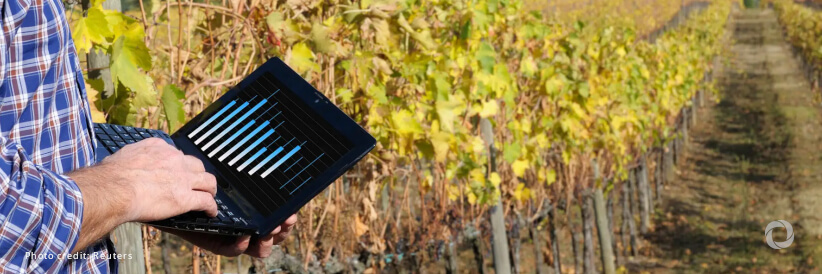The United Nations International Fund for Agricultural Development (IFAD) and German Sparkassenstiftung for International Cooperation (DSIK, for its German acronym) unveiled Innovatech 2.0, a program that will facilitate the access of at least 17,000 small crop and livestock producers to technology, with the object of boosting their productivity, income, and resilience to climate change.
IFAD President Álvaro Lario stated during the launch that Innovatech 2.0 will promote the development of technology start-ups that can offer services that respond to the needs of agricultural producers. This is very important because dynamic rural sectors are needed to provide nutrition for the world and attractive opportunities to encourage more young people to engage in agriculture.
Innovatech’s General Director, Christina Olsen, underscored that Innovatech demonstrates that start-ups need investment to overcome the initial barriers and adapt their business models to the real needs of rural communities. In addition to specialized advisory services, the program improves start-ups’ ability to work with small producers and reduces the digital divide.
Innovatech 2.0 is being implemented by German Sparkassenstiftung for International Cooperation and has received US$4 million in financing from IFAD and the European Union, which participates through the Global Program for Small Agroecological Producers and Sustainable Transformation of Food Systems (GP-SAEP).
Despite their essential role in guaranteeing food security, small producers encounter difficulties, such as access to financing, technology, and training, that limit their ability to produce food. Furthermore, technology companies do not always operate in rural areas due to physical distance, cost,s, and limited digital literacy.
In this context, the surge in FinTech (financial technology) and AgriTech (technology applied to agriculture) represents a valuable opportunity to overcome these challenges. Fifteen start-ups selected by Innovatech 2.0 will participate in an initiative to accelerate the development or adaptation of digital solutions that will enable producers to boost their production and marketing capacity, access financial and non-financial services, and adopt sustainable agricultural practices.
These technology solutions will be utilized by at least 340 rural organizations in five countries in Latin America—Bolivia, El Salvador, Guatemala, Honduras and Peru— and one in Asia, Bangladesh. Some of these organizations are already practicing agroecology or are in the process of introducing it. Forty per cent of the applications developed with Innovatech 2.0 will facilitate access to digital services to accelerate this transition, contributing to the sustainability of food systems through the conservation of natural resources and less use of chemical inputs, among other practices.
Rossana Polastri, Regional Director of IFAD’s Latin America and the Caribbean Division, stated that Latin America and the Caribbean is the region of the world with the second highest exposure to extreme climate events. In this context, it is critical to bolster the resilience of food systems, especially those of small farmers. With this project, innovative solutions will be devised to help producers be better prepared for climate change.
The program will also offer technological training to rural youth, women, Indigenous people, and returning migrants, as well as specialized mentoring to ensure effective adoption of the technologies and foster employment opportunities in technology start-ups that will contribute to resilient and sustainable agrifood systems. The participants will include at least 8,500 women, 8,500 young people, and 1,700 people from Indigenous communities.
Another Innovatech 2.0 innovation is the “Hub Edition”: two innovation centers will be selected, trained, and supported financially to apply the program methodology and support the start-ups that will develop technology solutions in El Salvador and Peru.
The first edition of Innovatech was implemented between 2021 and 2023, providing digital solutions to producers in six Latin American and Caribbean countries, with a positive impact on nearly 21,000 households – more than double the number initially foreseen. The solutions developed helped improve the education and financial inclusion of producers, facilitate their access to machinery, optimize the management of their businesses, and enable them to take advantage of e-trade, among other benefits.

